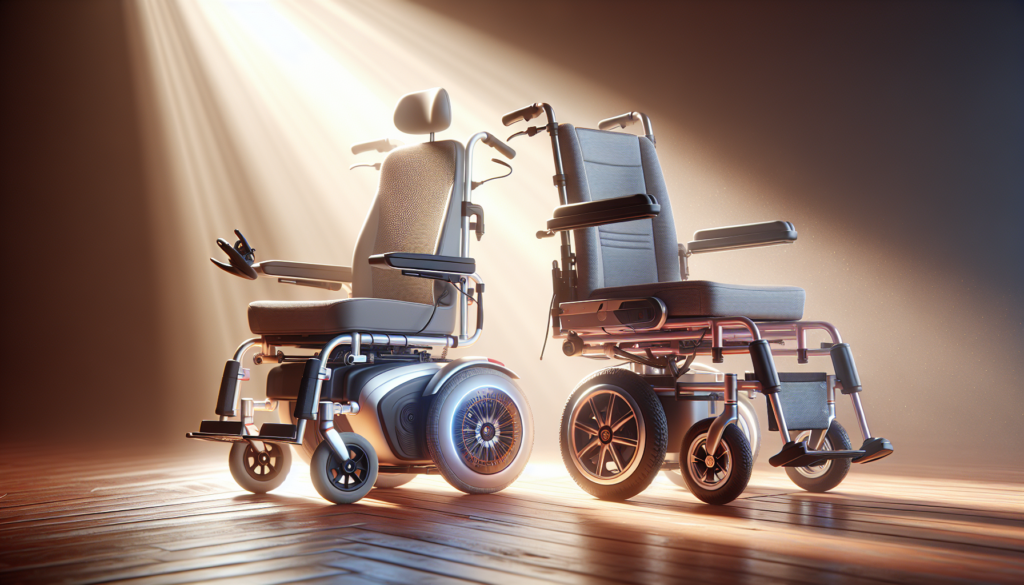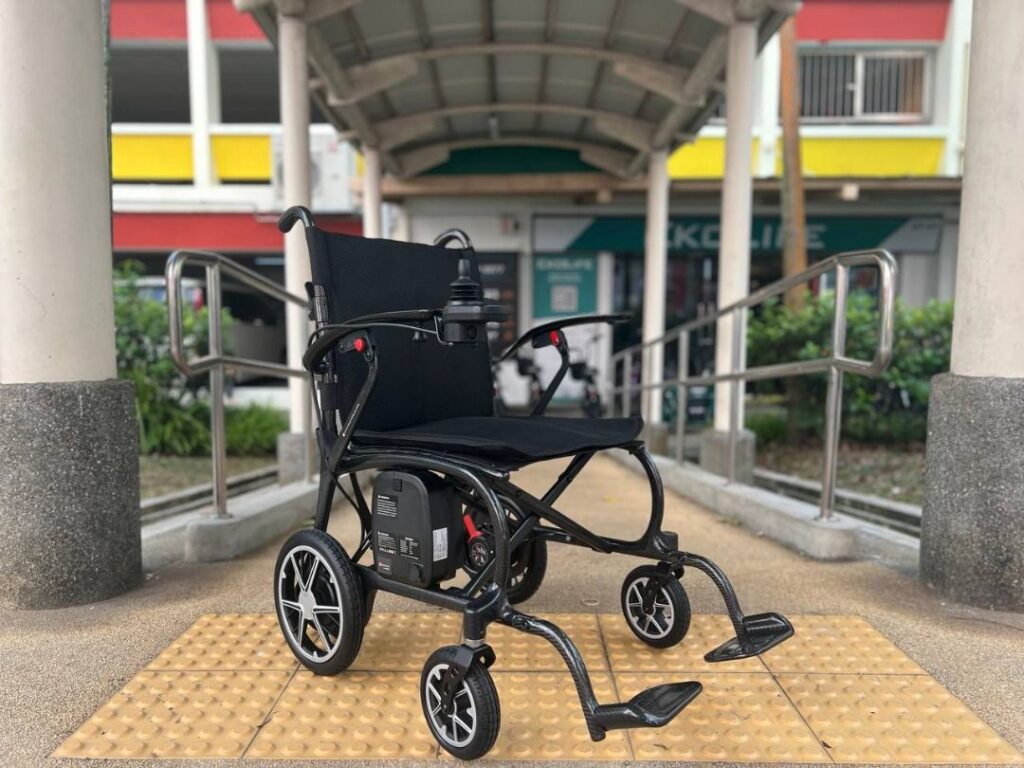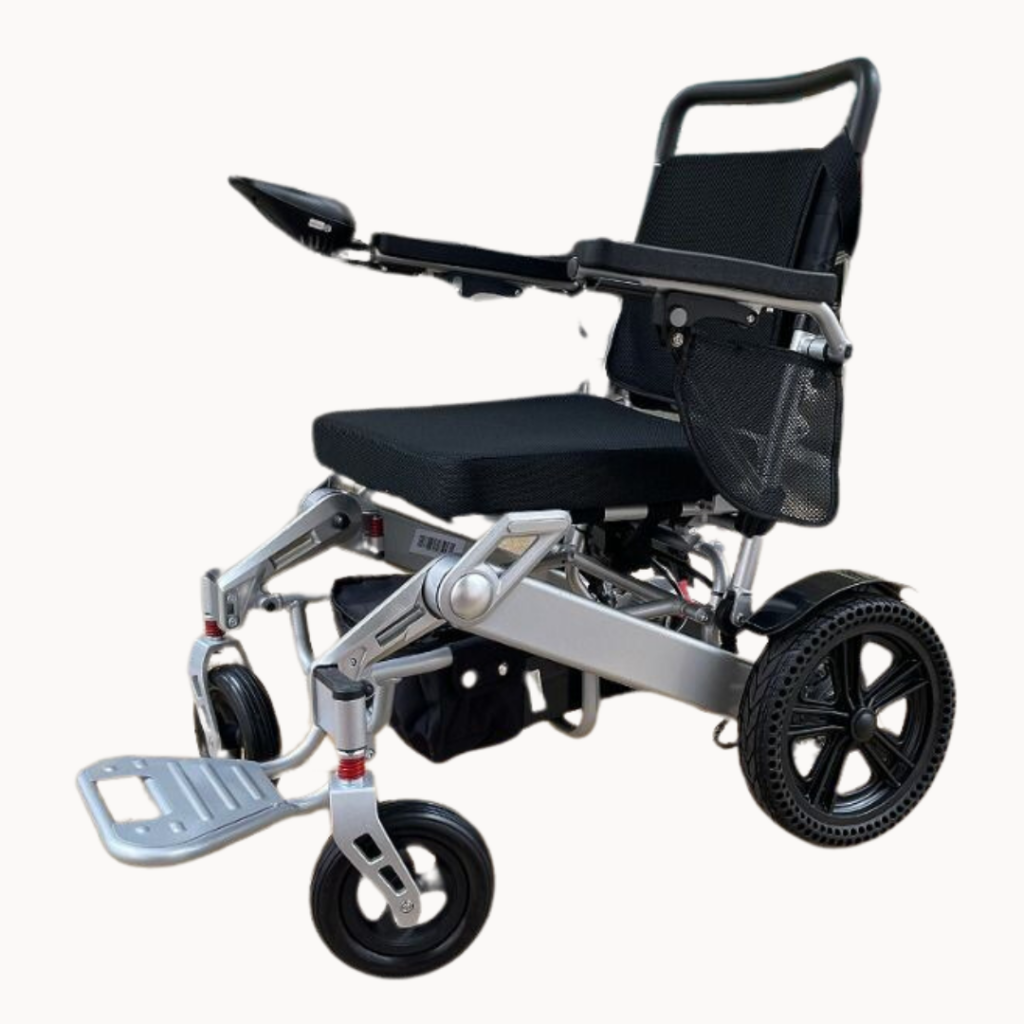Deciding between the lightest electric wheelchair and a heavy duty electric wheelchair can feel overwhelming, especially with the myriad options available on the market today. Each type comes with its own set of advantages that cater to different mobility needs and lifestyle preferences. While the lightest electric wheelchair offers portability and ease of maneuverability, the heavy-duty variant often boasts enhanced stability and greater weight capacity, making it suitable for individuals with more extensive mobility challenges. Understanding these differences is crucial to making the right choice for your specific requirements, ensuring comfort and independence in your daily life.

Understanding Lightest Electric Wheelchairs: Features and Benefits
Lightest electric wheelchairs are designed for users who prioritize ease of transport and maneuverability. Typically weighing under 50 pounds, these chairs are ideal for individuals who require a mobility solution that can be easily lifted into vehicles or transported on public transport. One of the standout features of the lightest electric wheelchair is its compact design, allowing for smooth navigation in tight spaces such as homes or busy restaurants.
Additionally, many models come with customizable seating and controls that can be adjusted to fit the user’s specific needs, making them both user-friendly and adaptable to various lifestyles. The benefits of choosing a lightest electric wheelchair extend beyond portability. They often come equipped with efficient batteries that provide decent range without the added weight of heavy-duty models.
Users can enjoy the freedom of going to leisure activities or completing daily errands without the burden of a cumbersome device. Furthermore, the design typically emphasizes comfort, offering cushioned seating and ergonomic support, which enhances the overall experience. As such, for those who value independence and mobility in everyday life, the lightest electric wheelchair is a compelling choice that combines convenience, comfort, and efficiency in one versatile package.

Exploring Heavy Duty Electric Wheelchairs: Strength and Support
Heavy duty electric wheelchairs are specifically designed to provide strength and support for individuals who require a robust mobility solution. These wheelchairs often feature reinforced frames, powerful motors, and enhanced weight capacities, making them suitable for users with heavier body types or those who need additional durability for outdoor terrains. They also typically come equipped with larger, sturdy wheels that offer better traction and stability, which is essential for navigating diverse environments.
Users can enjoy the peace of mind knowing that their wheelchair can withstand daily usage and provide reliable transportation without compromising safety or comfort. Moreover, heavy duty electric wheelchairs often offer a range of customizable features to cater to individual needs, such as adjustable seating positions, powerful battery options for extended range, and advanced suspension systems for a smoother ride.
While they may not be the lightest electric wheelchairs on the market, their emphasis on strength and support makes them ideal for those who prioritize functionality and durability over portability. By understanding the benefits of heavy duty models, users can make an informed choice that aligns with their specific mobility requirements and ensures long-term satisfaction with their electric wheelchair choice.

Comparative Analysis: Weight vs. Durability
When selecting an electric wheelchair, the balance between weight and durability plays a crucial role in ensuring the right fit for the user’s lifestyle. A lightest electric wheelchair is designed for ease of transport and maneuverability, making it ideal for those who require mobility assistance for short distances or frequent use in tight spaces. These models often weigh under 50 pounds, allowing for effortless loading into vehicles and easy handling.
However, users should be mindful that lighter wheelchairs may sacrifice some sturdiness, which can impact their performance on uneven terrains or in more demanding situations. On the other hand, a heavy-duty electric wheelchair caters to users who need enhanced durability and support, particularly for those with larger body types or specific health conditions.
These wheelchairs are built to accommodate higher weight capacities and often come equipped with robust features such as larger wheels, reinforced frames, and powerful motors. While they may be bulkier and less portable, their construction offers superior stability and a comfortable ride over various surfaces. Ultimately, the choice between a lightest electric wheelchair and a heavy-duty option depends on the individual’s lifestyle requirements and the environments they navigate most often.
Mobility Needs: Identifying What’s Best for You
When it comes to choosing between the lightest electric wheelchair and a heavy-duty option, it’s essential to first evaluate your mobility needs. If you require a wheelchair mainly for short distances or casual use, a light electric wheelchair may be the best fit. These models are typically easier to carry, transport, and maneuver, making them perfect for those who value portability. Additionally, they often have a compact design, allowing for easier navigation in tight spaces and urban environments.
If you find yourself needing a wheelchair for everyday activities or outings, a lighter option could enhance your overall mobility experience without adding excess weight to your lifestyle. However, if your mobility needs extend to more demanding situations, such as negotiating rugged terrain or supporting more weight, then a heavy-duty electric wheelchair might be the optimal choice.
These wheels are designed with durability in mind and can often handle a variety of conditions and user weights. They’re built with robust features like heavy-duty frames and powerful motors, ensuring better performance on uneven surfaces. Ultimately, understanding your specific mobility requirements will guide you toward making the best decision that aligns with your lifestyle and daily activities.
Cost Considerations: Budgeting for Your Electric Wheelchair
When it comes to selecting an electric wheelchair, cost is a crucial factor that influences overall decision-making. The lightest electric wheelchairs generally come with a lower price point, making them an attractive option for budget-conscious buyers. These models often focus on portability and ease of use, which can be beneficial for users who require a wheelchair for short-term mobility needs or travel. However, keep in mind that while the initial investment may be lower, light electric wheelchairs might lack certain features or durability that heavier, more robust options can provide.
Thus, it’s important to evaluate not just the upfront cost but also the potential long-term value and usability of the product. On the other hand, heavy-duty electric wheelchairs tend to come with a higher price tag due to their advanced features and enhanced durability. They are designed to support greater weight capacities and provide better performance over varied terrains.
For those who anticipate needing a wheelchair for more extensive daily use or specific health needs, investing in a heavy-duty model could prove more economical in the long run despite the higher initial expenditure. Ultimately, assessing your personal needs, usage scenarios, and available budget will guide you in making the best financial decision when choosing between the lightest electric wheelchair and a heavy-duty alternative.
User Experience: Comfort and Accessibility in Different Models
When considering user experience in electric wheelchairs, comfort and accessibility are paramount factors that can significantly influence your choice. Lightest electric wheelchairs are designed for ease of use, often featuring lightweight materials that allow for easier maneuverability and transport. Users often report that these models provide a more enjoyable riding experience, especially in tight spaces or when navigating around the home. The compact design generally leads to increased accessibility for various environments, whether it’s indoors or outdoors.
However, the lightweight construction may sacrifice some stability and durability, which are essential for users needing extra support or reliability over rough terrains. On the other hand, heavy-duty electric wheelchairs are tailored for users who require more robust support and functionality. These models offer enhanced comfort features, such as more spacious seating and better suspension systems that can absorb shocks from uneven surfaces.
While they may not be as easily transportable, the sturdiness of heavy-duty wheelchairs provides confidence to users with greater mobility challenges or health concerns. In the end, your choice should be guided by personal needs, with comfort and accessibility standing out as the vital elements in ensuring a satisfactory user experience, regardless of the model you choose.
Real-Life Testimonials: Users Share Their Experiences
Many users of electric wheelchairs have shared their experiences regarding the choice between lightest electric wheelchairs and heavy-duty models. For instance, Jane, a passionate traveler, expressed her enthusiasm for her lightweight electric wheelchair, which made navigating through airports and city streets a breeze. She found that the portability of her model not only allowed her to easily lift it into her vehicle, but it also made boarding public transportation much more manageable.
Jane emphasized that the lightest electric wheelchair was perfect for her active lifestyle, enabling her to explore places and participate in activities that would have been challenging with a heavier model. On the other hand, Tom, a user requiring a bit more support, opted for a heavy-duty electric wheelchair. His experience highlighted the advantages of enhanced stability and durability that come with these larger models.
Tom explained how his heavy-duty wheelchair provided all the comfort and functionality he needed for everyday activities while accommodating his specific mobility challenges. Users like Tom found that when it comes to heavier chairs, the trade-offs in weight often pay off in terms of long-term assistance and reliability. Both testimonials demonstrate that the right choice ultimately depends on individual needs and preferences.
Making the Right Choice for Your Mobility Needs
In conclusion, choosing between the lightest electric wheelchair and a heavy-duty electric wheelchair ultimately depends on your individual mobility needs and lifestyle. If portability and ease of transportation are your top priorities, the lightest electric wheelchair might be the best fit for you. These wheelchairs often come with features that enhance maneuverability in tight spaces and provide a seamless transition for users who travel frequently or have limited living space.
However, if you require additional support, durability, and functionality for various terrains, investing in a heavy-duty electric wheelchair might be the better option for long-term use. Ultimately, it’s crucial to consider factors such as weight capacity, battery life, and comfort alongside your personal requirements.
Conducting thorough research and seeking advice from professionals can help you make an informed decision that aligns with your mobility goals. Remember, the right electric wheelchair will empower you to regain your independence and enjoy life to the fullest, no matter which option you choose.
What this blog doesn’t mention is how the users with mobility difficulties interact with their environment, taking that into consideration could make the electric wheelchair even more user-friendly.
You make a great point, Rajiv Ang. At Eko Life, we understand the importance of accessibility and interaction with the environment for users with mobility difficulties. We’re constantly looking for ways to improve our e-wheelchairs to make them more user-friendly and adaptable to different environments. Perhaps future features could include adjustable profiles to navigate uneven terrain or interfaces that can detect and adjust to obstacles. We appreciate your valuable feedback and would love to discuss this further with you at [email protected] or +65 6589 8877.
I appreciate how this blog breaks it down to the main points, it’s really helpful for people in the market looking for an electric wheelchair. The advice on considering individual mobility needs is spot on.
Thank you so much, Samantha! We’re glad you found the information helpful. We completely agree that individual needs should be at the forefront when choosing an electric wheelchair. If you have any specific questions or would like further guidance, please don’t hesitate to contact us at [email protected] or +65 6589 8877. We’re here to help you find the perfect mobility solution.
The pros and cons of lightest and heavy-duty are well compared here but for beginners like me it might be challenging to weigh their needs, what would be great is case studies of users and their journey.
Hello Evangelina, thank you for sharing your thoughts! We truly appreciate your feedback. While it’s great to provide general comparisons, we understand that individual experiences can greatly vary. We’d love to hear more from our readers, including case studies of users and their journeys, to give a more in-depth look at the benefits and challenges of using different types of electric wheelchairs. Perhaps we can share user reviews or testimonials in our future blog posts? If you’re willing to share your own experience, feel free to drop us a message at [email protected] or give us a call at +65 6589 8877. We’re always here to help.